Implementation & Adoption Stories
The FAIR-IMPACT Implementation stories illustrate good practices in research communities and organisations to support the implementation of the FAIR principles.
Implementation Story
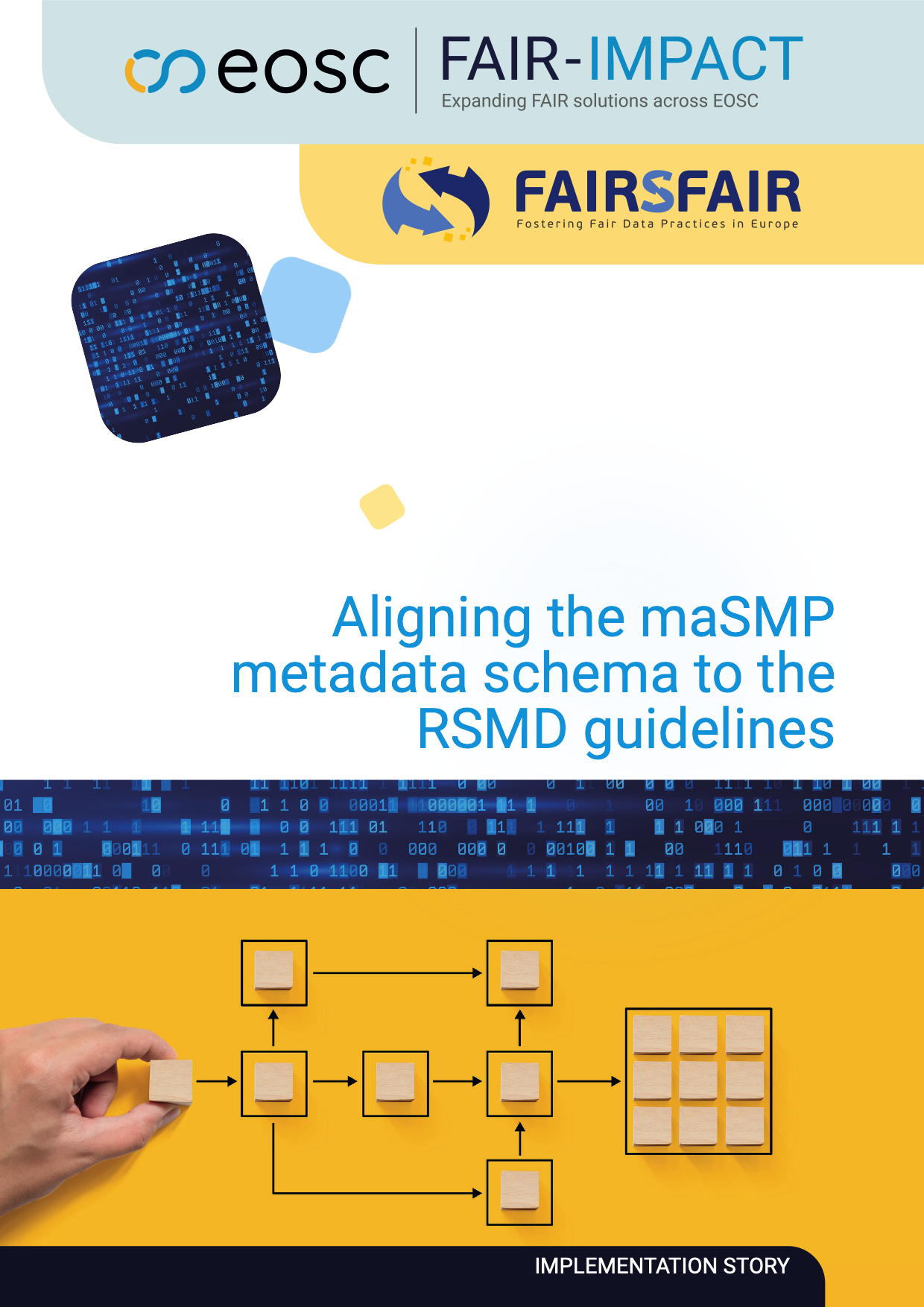
This FAIR Implementation Story outlines the specific aims and actions of the Semantic Technologies team at ZB MED Information Centre in Life Sciences in relation to their participation in one or both support actions.
Implementation Story
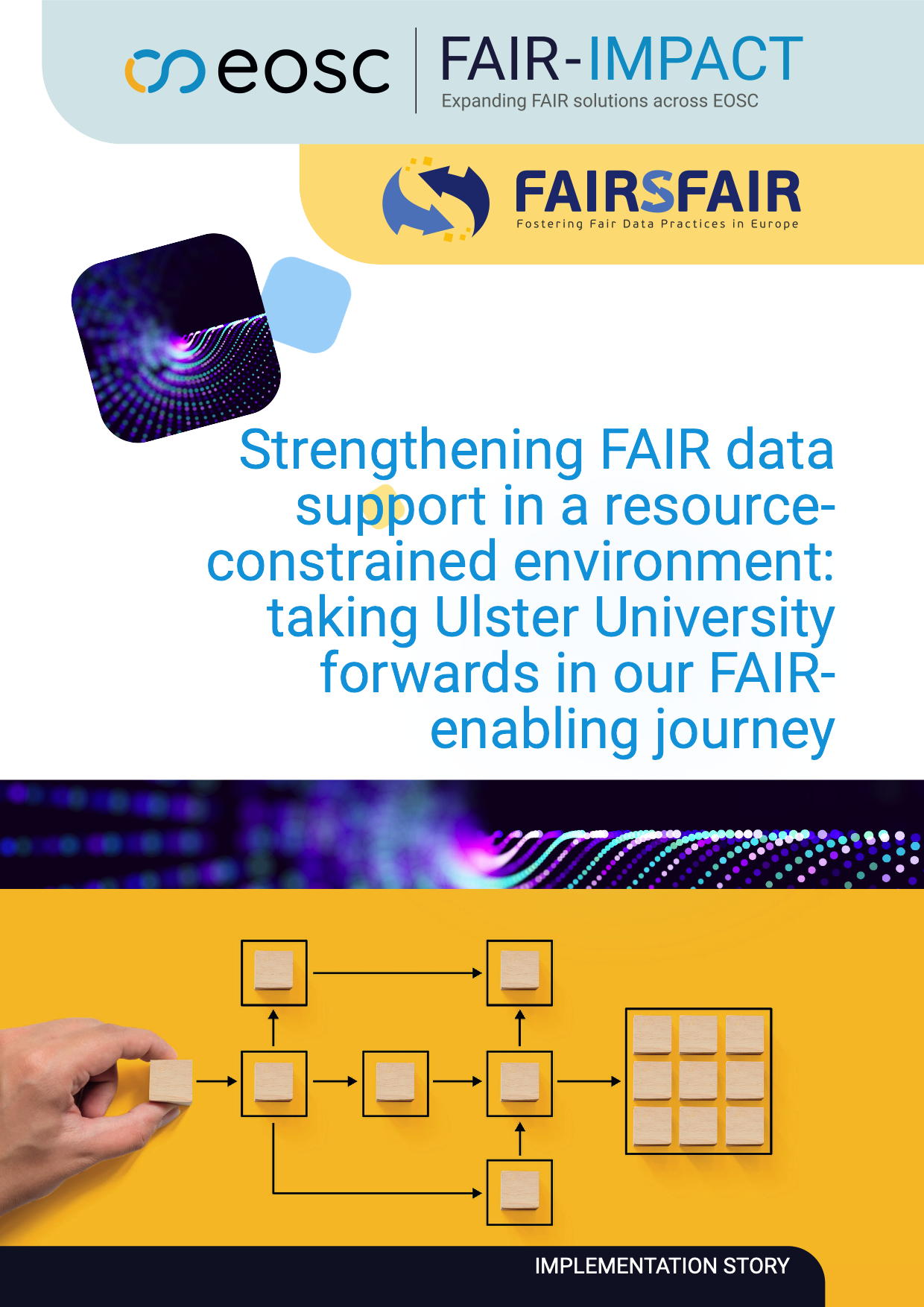
This FAIR Implementation Story outlines the specific aims and actions of Ulster University in relation to their participation in the RPO support programme.
Implementation Story
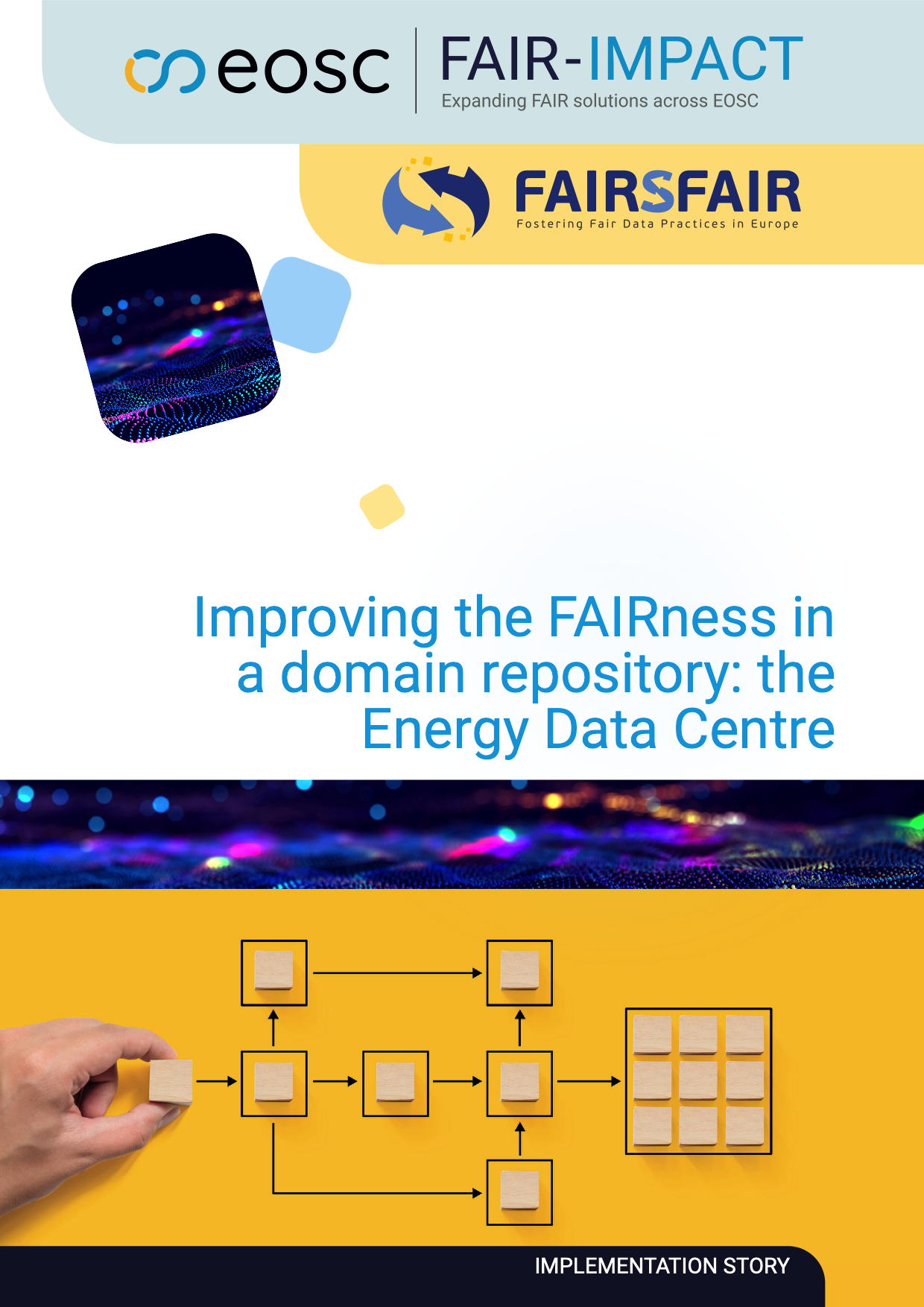
The Energy Data Centre (EDC) used participation in the programme to focus attention on upskilling the team on FAIR principles as well as refreshing their repository’s policies and work in the context of FAIR practices.
Implementation Story
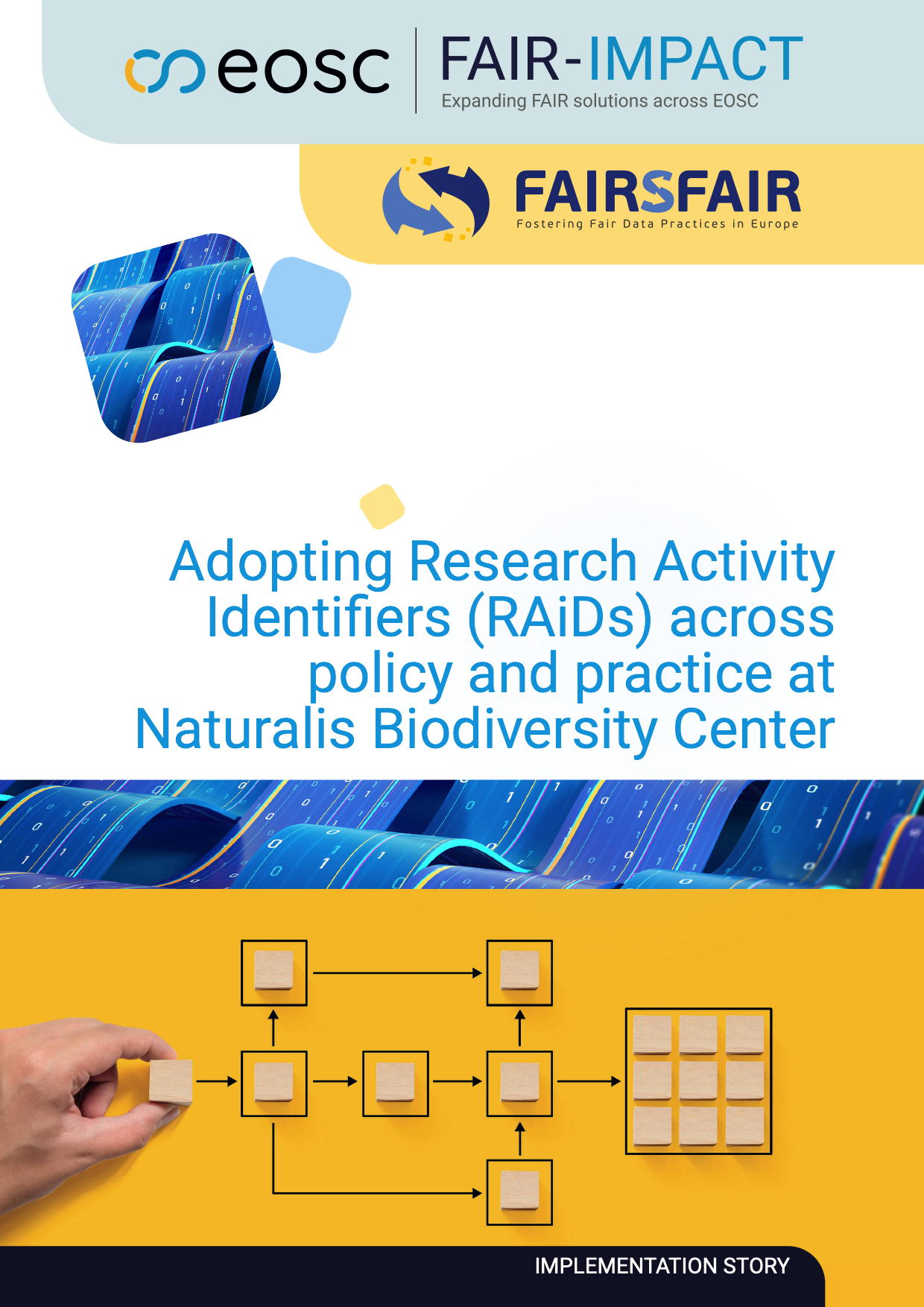
Naturalis’ participation in the programme was a catalyst for practical FAIR implementation. Their choice of focusing on a specific task—the adoption of Research Activity Identifiers—helped in structuring their efforts, but even then, implementing FAIR in practice presented challenges in terms of the scale and coordination needed from the whole organisation. Conversely, it turned out to have a larger impact on the institutional processes than they had originally envisioned
Implementation Story
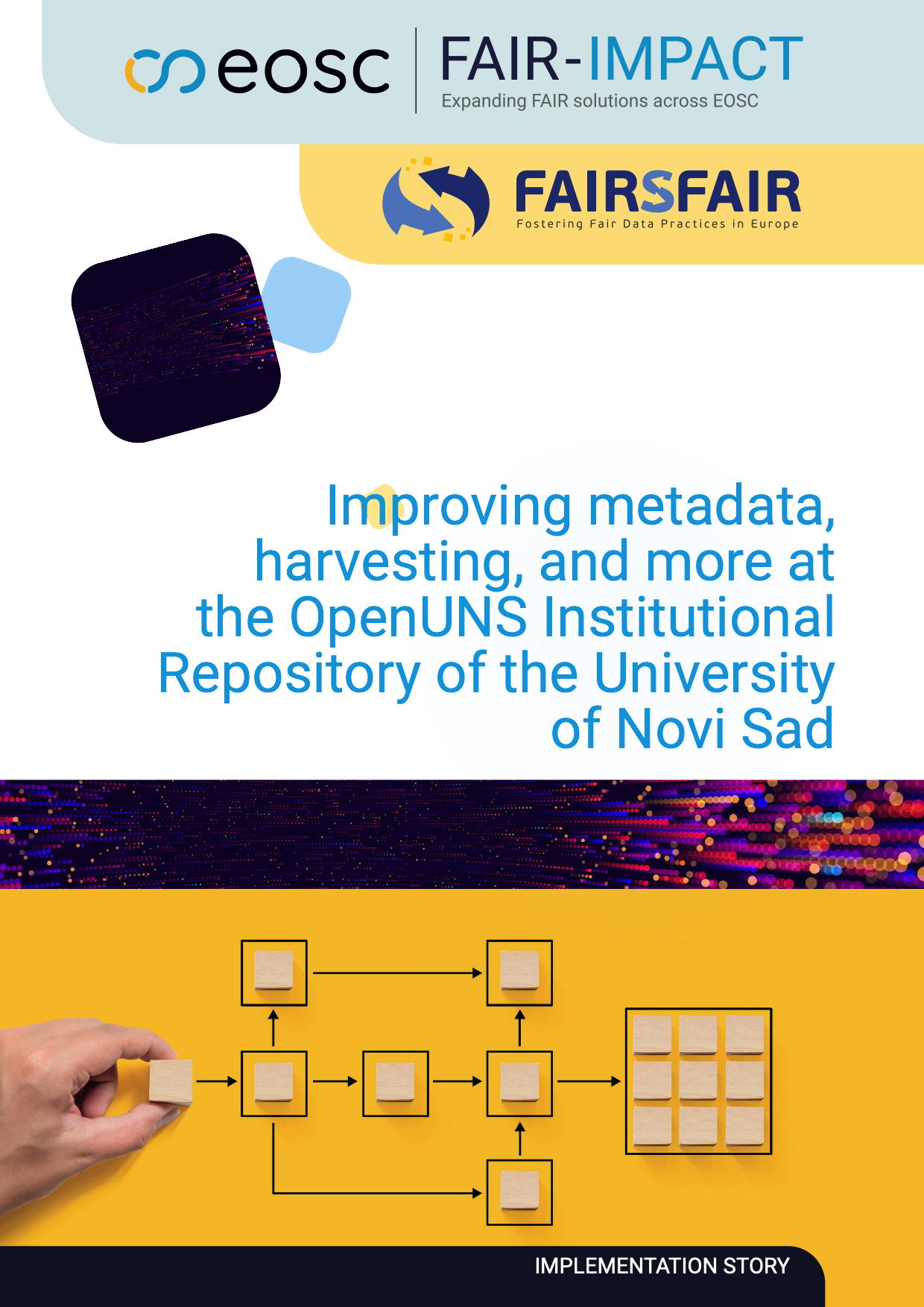
The University of Novi Sad developed an action plan to implement improvements to their institutional repository. Improvements were planned to the repository service and data to become more aligned with the FAIR principles.
Implementation Story
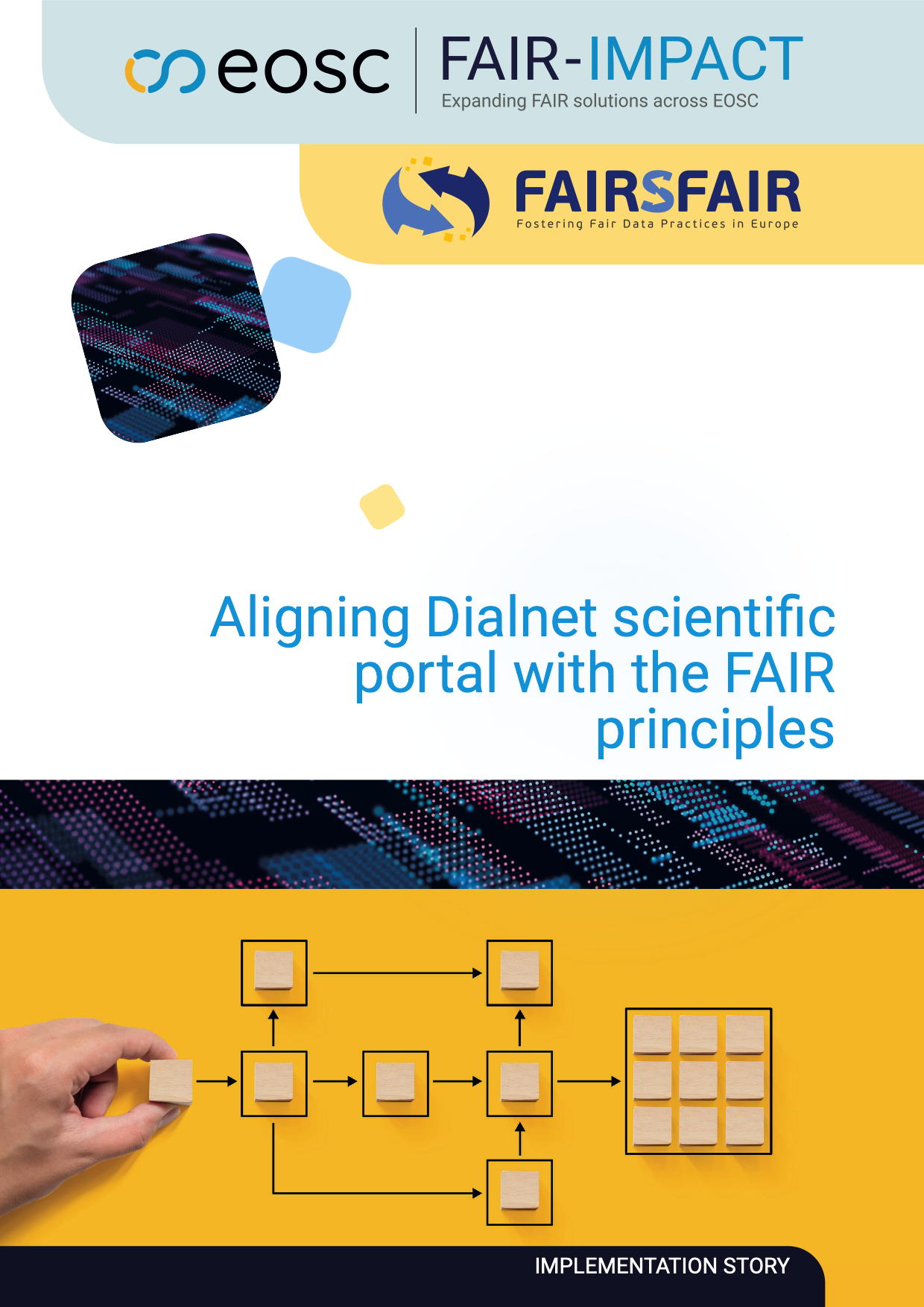
Through the Spanish Foundation for Science and Technology, the University of La Rioja obtained a grant to develop its own data Repository associated with their institutional CRIS. Dialnet attempts to provide a solution for that purpose and, in addition, to make that extensible to other institutions. Through participation in this support program, Dialnet identified ways in which the data repository could align with the FAIR principles, and ways in which to engage with stakeholders.
Implementation Story
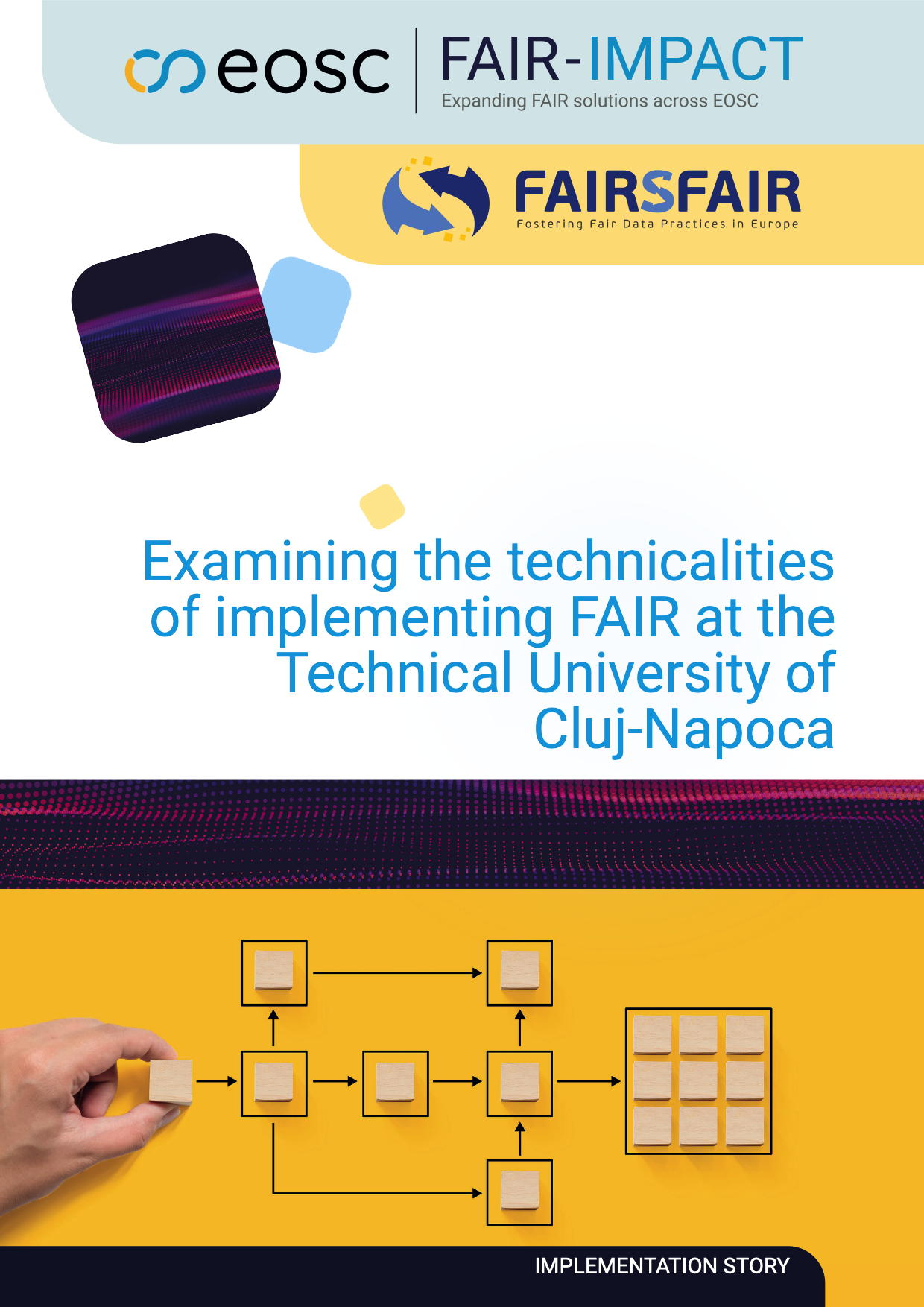
In this FAIR Implementation Story we learn how a highlight of the programme was making a valuable connection with the Digital Repository of Ireland – another repository that provides long-term preservation and access to cultural digital data.
Implementation Story
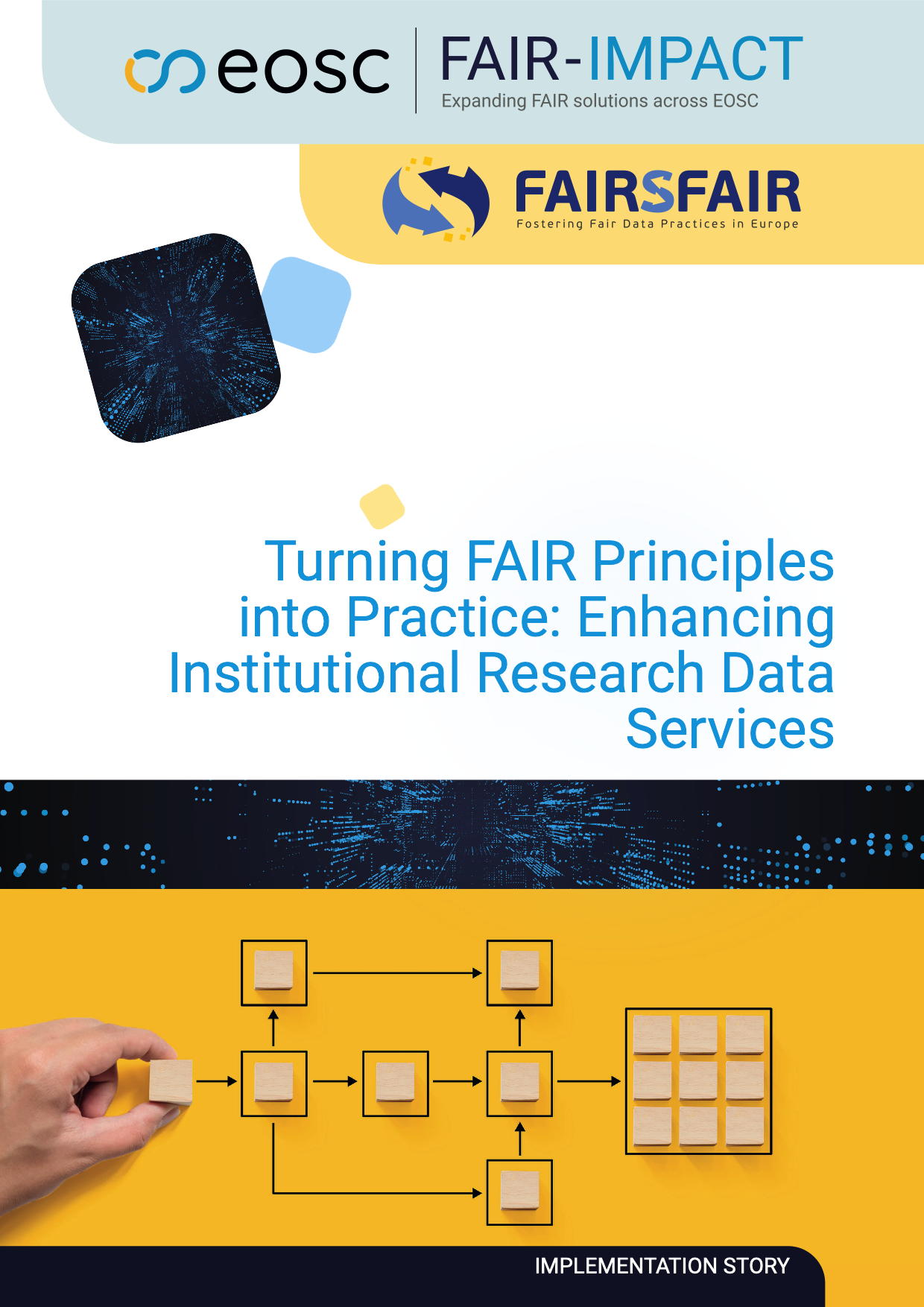
During the FAIR-IMPACT support programme, the library advanced preservation planning, improved metadata standards, and increased FAIR alignment. User needs were explored through interviews and testing. Governance gaps were identified and are being addressed. CoreTrustSeal readiness progressed, and internal clarity and external visibility of services significantly improved.
Implementation Story
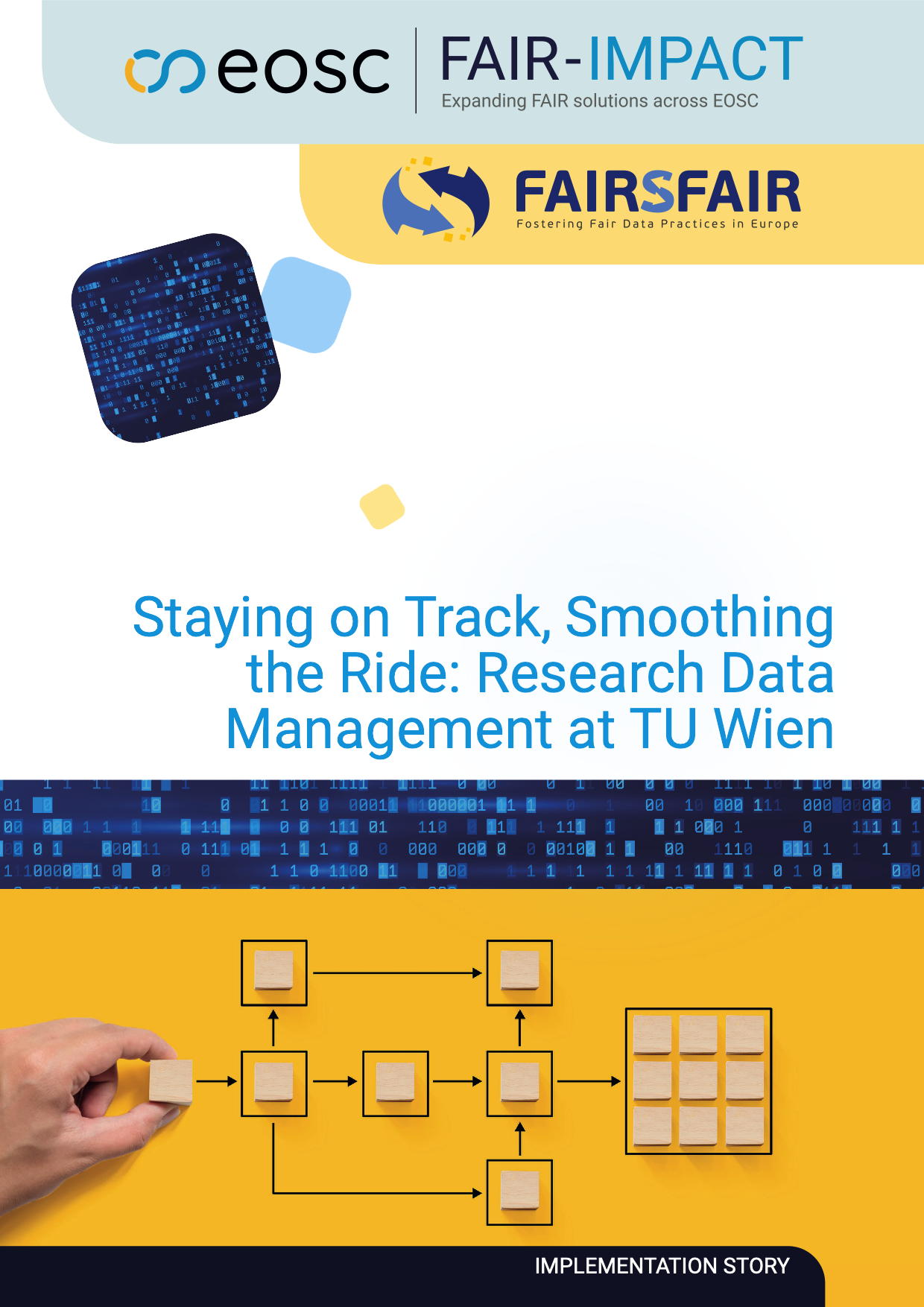
A team from the Center for Research Data Management at TU Wien participated in the repository support action, during which they identified and started working towards a range of actions to increase the engagement with their users and the efficiency of their work to raise awareness of good RDM practices among them.
Implementation Story
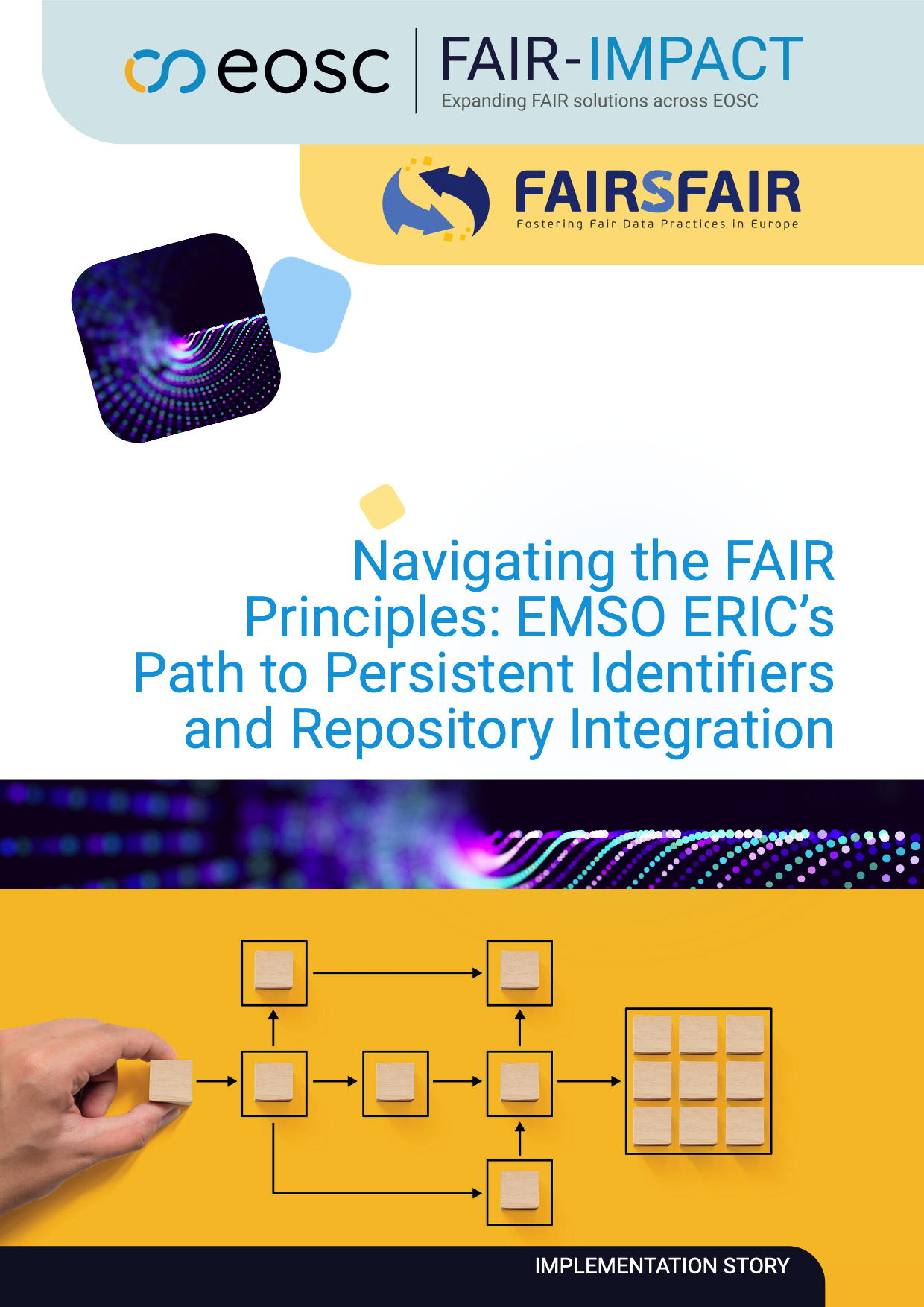
This FAIR Implementation Story outlines the specific aims and actions of The European Multidisciplinary Seafloor and Water Column Observatory (EMSO ERIC) in relation to their participation in this Support Programme.
Implementation Story
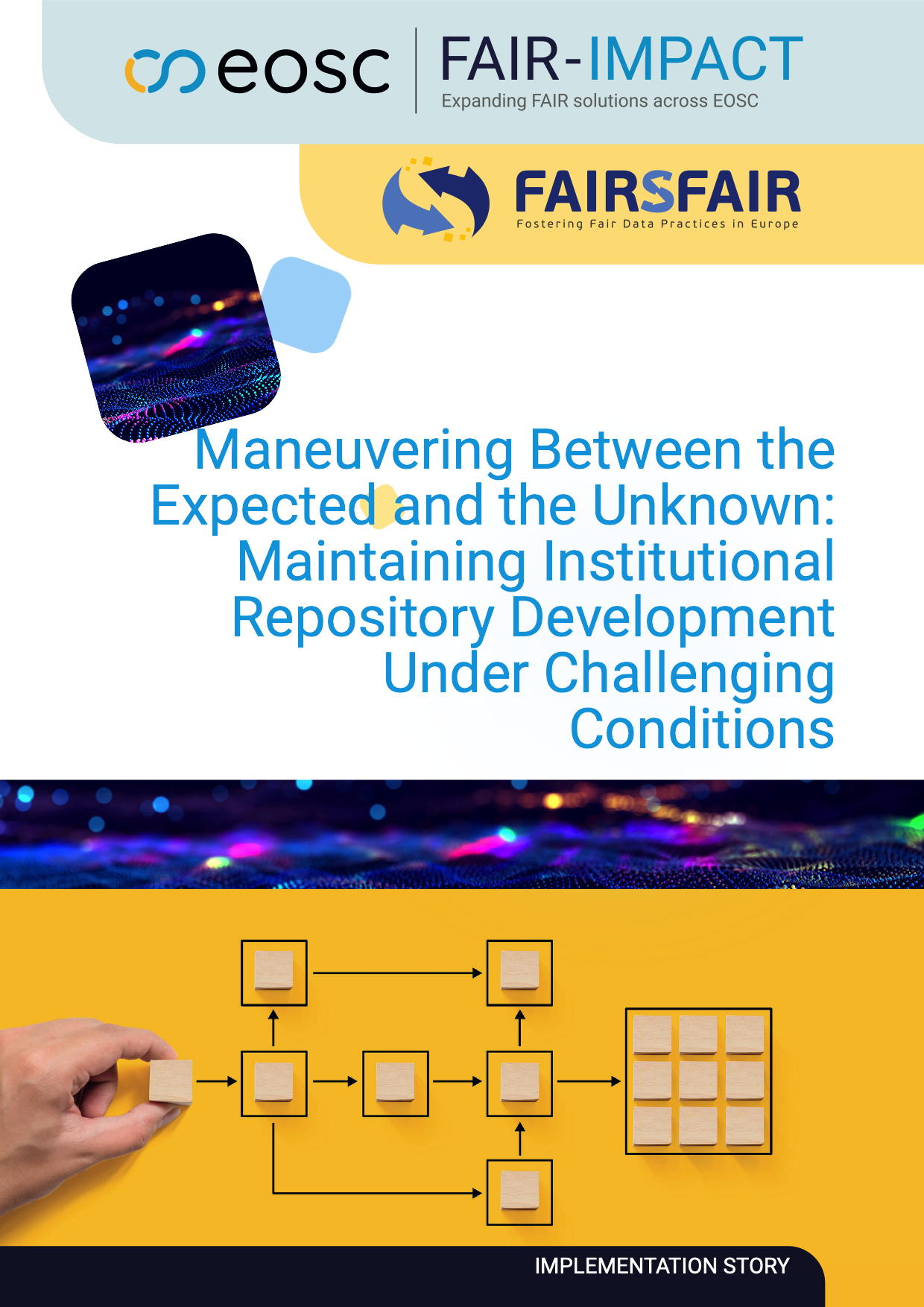
The University of Maribor Library participated in the FAIR-IMPACT Support Programme to enhance the implementation of FAIR principles in the University of Maribor’s institutional repository, DKUM. Our efforts focused on policy improvements, increasing the FAIR-ness of data, and stakeholder engagement.
Implementation Story
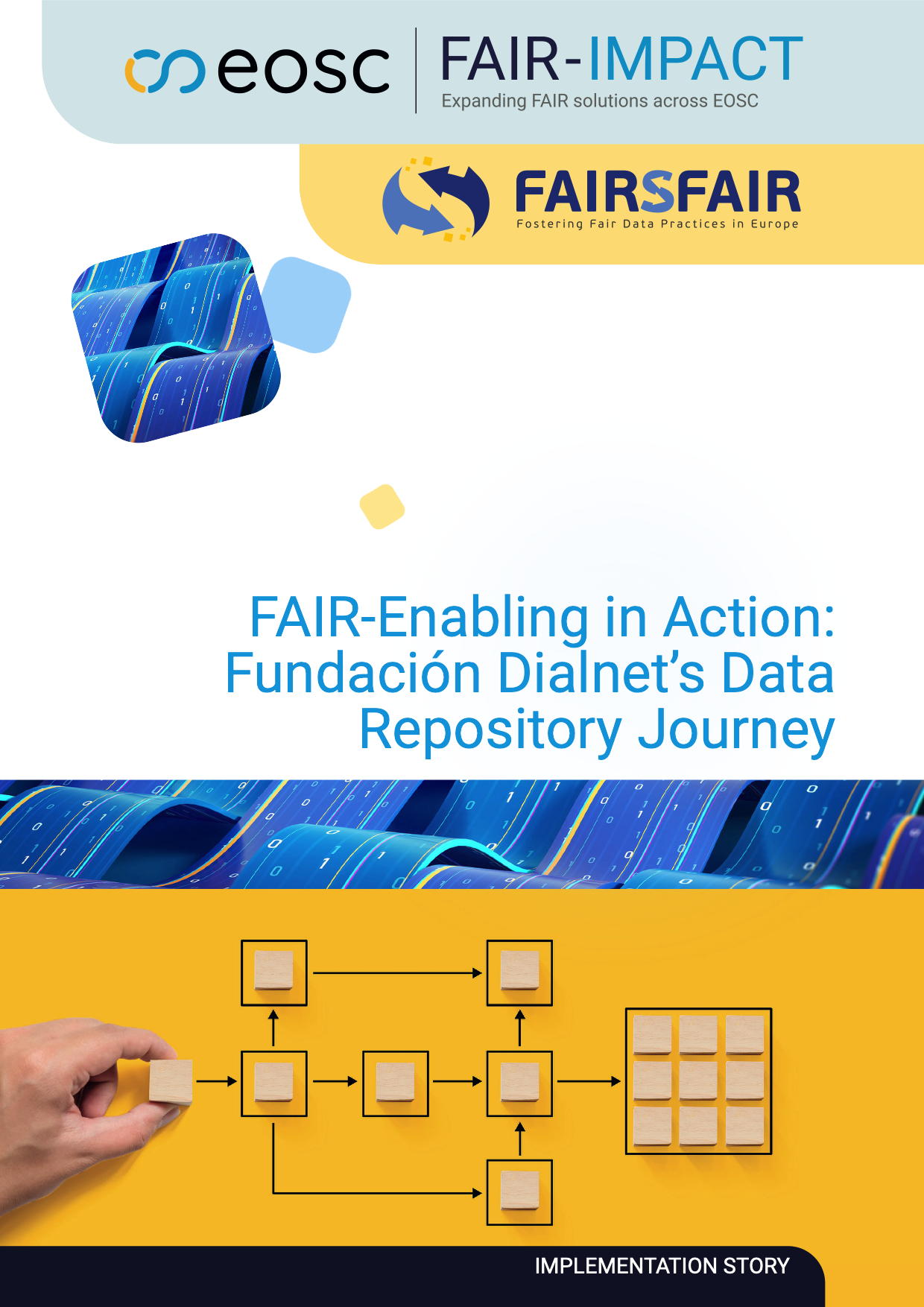
Fundación Dialnet’s participation in FAIR-IMPACT’s Support Programme for Repositories and Data Service Providers supported them in building key relationships with their peers across Europe. Leveraging these relationships, Dialnet were able to learn how other repositories were being more FAIR enabling, as well as finding out potential solutions for connecting their Current Research Information System with data repositories.